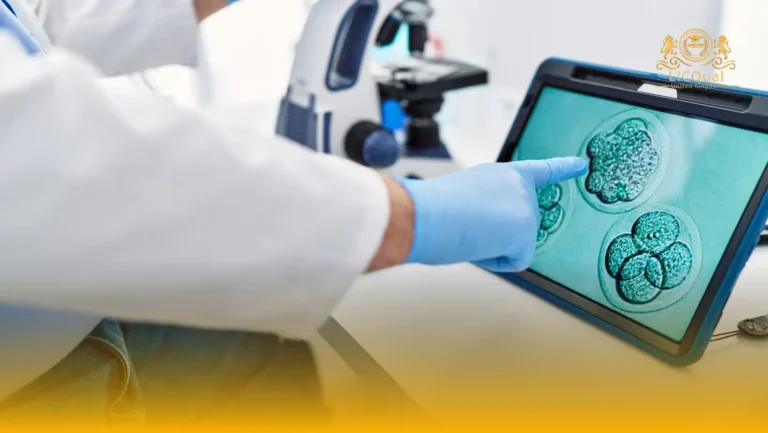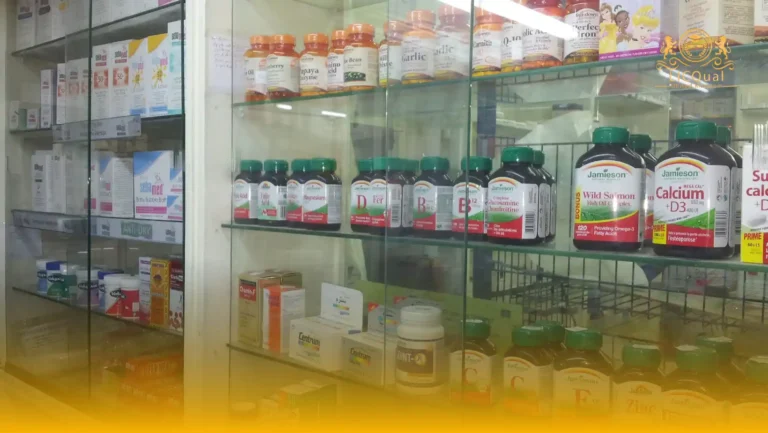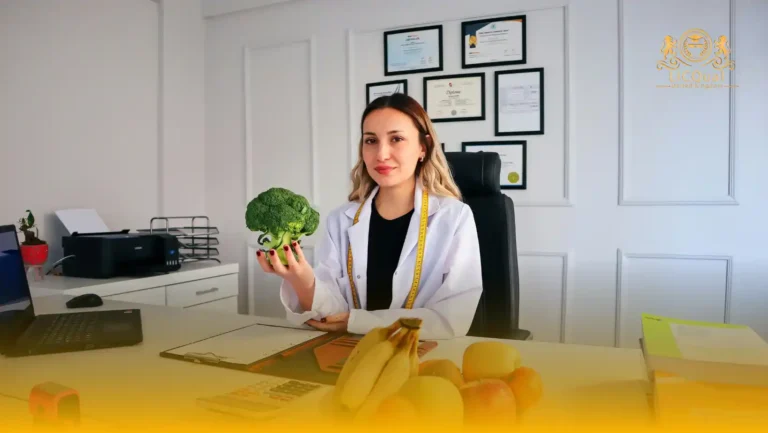The LICQual Level 7 Postgraduate Diploma in Paediatric Surgery (PgDPS) is a highly specialised qualification designed for experienced healthcare professionals aiming to advance their expertise in paediatric surgical practice. The LICQual Level 7 Postgraduate Diploma in Pediatric Surgery (PgDPS) is not intended for fresh candidates but is tailored for doctors, surgeons, and healthcare practitioners who wish to enhance their career prospects, broaden their clinical knowledge, and strengthen their Continuing Professional Development (CPD).
LICQual Level 7 Postgraduate Diploma in Pediatric Surgery (PgDPS) demands advanced skills, precision, and a deep understanding of surgical interventions for infants, children, and adolescents. This diploma equips learners with the ability to critically analyse complex cases, apply evidence-based surgical techniques, and adopt a patient-centred approach to care. By integrating advanced theoretical knowledge with practical applications, the programme ensures that learners gain the competencies required to excel in paediatric surgical practice at both national and international levels.
Centres offering this qualification must maintain the highest academic and professional standards. They are required to employ competent and qualified staff with proven expertise in paediatric surgery and related disciplines. Additionally, centres must provide learners with access to the latest resources, clinical materials, and appropriate facilities to guarantee high-quality training and measurable learner success.
Through this diploma LICQual Level 7 Postgraduate Diploma in Pediatric Surgery (PgDPS), learners not only enhance their clinical and academic proficiency but also strengthen their leadership and research skills, opening opportunities for senior roles in paediatric surgical departments, specialist hospitals, and advanced research initiatives. The programme reflects international best practices and prepares healthcare professionals to meet the evolving challenges in paediatric surgery with confidence and excellence.
Course Overview
Qualification Title
LICQual Level 7 Postgraduate Diploma in Pediatric Surgery (PgDPS)
Total Units
6
Total Credits
120
GLH
600
Qualification #
LICQ2200993
Qualification Specification
To enroll in the LICQual Level 7 Postgraduate Diploma in Pediatric Surgery (PgDPS), applicants must meet the following criteria:
|
Qualification# |
Unit Title |
Credits |
GLH |
|---|---|---|---|
|
LICQ2200993-1 |
Advanced Principles of Paediatric Surgery and Patient Care |
20 |
100 |
|
LICQ2200993-2 |
Diagnostic Methods and Clinical Decision-Making in Paediatric Surgery |
20 |
100 |
|
LICQ2200993-3 |
Surgical Techniques for Neonatal and Infant Surgery |
20 |
100 |
|
LICQ2200993-4 |
Management of Congenital and Acquired Paediatric Surgical Conditions |
20 |
100 |
|
LICQ2200993-5 |
Paediatric Trauma, Emergency Surgery, and Critical Care |
20 |
100 |
|
LICQ2200993-6 |
Research, Evidence-Based Practice, and Professional Development in Paediatric Surgery |
20 |
100 |
By the end of this course, learners will be able to:
Unit 1: Advanced Principles of Paediatric Surgery and Patient Care
- Critically evaluate the unique anatomical, physiological, and developmental considerations in paediatric surgery
- Apply advanced principles of perioperative care for infants, children, and adolescents
- Assess ethical, legal, and safeguarding issues in paediatric surgical practice
- Integrate patient-centred approaches to improve surgical outcomes and family involvement in care
Unit 2: Diagnostic Methods and Clinical Decision-Making in Paediatric Surgery
- Analyse advanced diagnostic imaging and laboratory techniques for paediatric surgical conditions
- Formulate accurate differential diagnoses in complex clinical cases
- Apply clinical reasoning to develop safe and effective surgical management plans
- Evaluate emerging diagnostic technologies and their role in paediatric surgery
Unit 3: Surgical Techniques for Neonatal and Infant Surgery
- Demonstrate advanced knowledge of surgical procedures for neonatal and infant patients
- Critically assess perioperative risks and complications in early-life surgery
- Apply minimally invasive and open surgical approaches in neonatal care
- Evaluate advancements in neonatal surgical interventions and outcomes
Unit 4: Management of Congenital and Acquired Paediatric Surgical Conditions
- Assess and manage congenital anomalies requiring surgical intervention
- Evaluate treatment approaches for acquired conditions in paediatric surgery
- Critically appraise evidence-based protocols for surgical management
- Apply multidisciplinary approaches to long-term care and rehabilitation
Unit 5: Paediatric Trauma, Emergency Surgery, and Critical Care
- Demonstrate advanced understanding of paediatric trauma assessment and stabilisation
- Apply evidence-based strategies in emergency surgical interventions
- Critically evaluate critical care principles for post-operative management
- Integrate interprofessional collaboration in trauma and emergency paediatric care
Unit 6: Research, Evidence-Based Practice, and Professional Development in Paediatric Surgery
- Design and conduct research relevant to paediatric surgical practice
- Critically analyse and apply current literature to improve clinical decision-making
- Demonstrate advanced skills in academic writing and presentation for surgical research
- Evaluate the role of CPD in maintaining professional competence and leadership in paediatric surgery
The LICQual Level 7 Postgraduate Diploma in Pediatric Surgery (PgDPS) is designed for healthcare professionals, pediatric surgeons, clinicians, and medical practitioners aiming to specialize in pediatric surgical care. This Level 7 qualification is ideal for those seeking internationally recognized credentials, advanced knowledge in child and neonatal surgery, and practical skills to manage complex pediatric conditions. Whether you work in hospitals, children’s clinics, private practice, or academic settings, this diploma equips you with the expertise and credibility to excel in pediatric surgery.
Pediatric Surgeons and Clinicians
- Designed for surgeons specializing in neonatal, infant, and child surgery.
- Enhances skills in congenital disorder management and corrective procedures.
- Builds expertise in minimally invasive and advanced surgical techniques.
- Strengthens evidence-based decision-making in pediatric surgical care.
- Provides internationally recognized credentials for career advancement.
Doctors and General Surgeons
- Ideal for general surgeons aiming to expand into pediatric surgery.
- Develops advanced understanding of child-specific surgical anatomy and physiology.
- Improves knowledge of perioperative care and postoperative management.
- Enhances skills in trauma, emergency, and elective pediatric procedures.
- Supports professional growth in hospital and clinical settings.
Nurses and Allied Health Professionals
- Tailored for nurses, surgical assistants, and allied health staff in pediatric care.
- Enhances patient assessment and monitoring in pediatric surgery.
- Builds confidence in assisting complex surgical procedures.
- Develops knowledge of ethical, legal, and professional standards.
- Supports continuing professional development (CPD) and clinical competency.
Medical Students and Postgraduate Trainees
- Suitable for graduates pursuing specialization in pediatric surgery.
- Provides strong foundational knowledge in neonatal and pediatric surgical care.
- Enhances clinical reasoning, research, and procedural skills.
- Prepares learners for postgraduate surgical training and practice.
- Offers internationally recognized certification to boost career prospects.
Healthcare Managers and Clinic Administrators
- Designed for managers overseeing pediatric surgery departments or clinics.
- Improves understanding of operational planning and clinical governance.
- Strengthens leadership in implementing pediatric surgical protocols.
- Promotes quality assurance and compliance in healthcare institutions.
- Supports strategic management of pediatric surgical services.
International Healthcare Professionals
- Perfect for global learners seeking UK-recognized pediatric surgery training.
- Offers flexible online learning to balance professional and study commitments.
- Equips learners with skills applicable in international hospitals and clinics.
- Builds credibility and recognition in global pediatric surgery networks.
- Supports career growth and international professional opportunities.
Private Clinic and Hospital Practitioners
- Designed for clinicians and surgeons running private pediatric clinics.
- Enhances patient consultation and advanced surgical planning expertise.
- Builds advanced skills in operative techniques and perioperative care.
- Encourages best practices in private clinical and hospital settings.
- Supports professional credibility and career progression in pediatric surgery.
Centres delivering the LICQual Level 7 Postgraduate Diploma in Paediatric Surgery must ensure the highest academic and professional standards. To deliver this qualification effectively, centres are required to have:
- Competent, qualified, and experienced academic and clinical staff with relevant expertise in paediatric surgery
- Access to up-to-date teaching and learning resources, including specialist medical texts, journals, and case studies
- Facilities to support practical and theoretical learning, such as clinical simulation resources or links with healthcare training environments
- Robust quality assurance systems to monitor teaching, assessment, and learner progress
- Policies in place to support learner welfare, safeguarding, and equality of opportunity
- Technological infrastructure, including access to digital learning platforms, online journals, and research databases
- A commitment to continuous improvement in training delivery, ensuring learners receive high-quality education and professional preparation
Assessment and Verification
All units within this qualification are subject to internal assessment by the approved centre and external verification by LICQual. The qualification follows a criterion-referenced assessment approach, ensuring that learners meet all specified learning outcomes.
To achieve a ‘Pass’ in any unit, learners must provide valid, sufficient, and authentic evidence demonstrating their attainment of all learning outcomes and compliance with the prescribed assessment criteria. The Assessor is responsible for evaluating the evidence and determining whether the learner has successfully met the required standards.
Assessors must maintain a clear and comprehensive audit trail, documenting the basis for their assessment decisions to ensure transparency, consistency, and compliance with quality assurance requirements.







